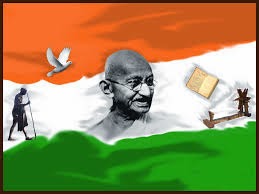RELIGION > ETHICAL RELIGION > Religious Morality or Moral Religion :6.

Religious Morality or Moral Religion : Gandhiji wrote the following prefatory note to this Chapter under the caption of "Darwin's Views on Ethics". [Before summarizing this Chapter, it is necessary to give an account first of Darwin himself. Darwin was a great Englishman of the last century who made great scientific discoveries. His memory and his power of observation were amazing. He has written some books which deserve to be read and pondered. With a mass of evidence and arguments, he has shown how man came into being; how he has evolved from a particular kind of monkey. After a large number of experiments and much sifting of evidence, he realized that there was not much difference between the anatomy of man and that of the ape. Whether this conclusion is correct or not has not much to do with ethics. Besides this, Darwin has also shown how ideas of morality affect mankind. And as many scholars have faith in Darwin's writings.] It is noble voluntarily...

.jpg)



